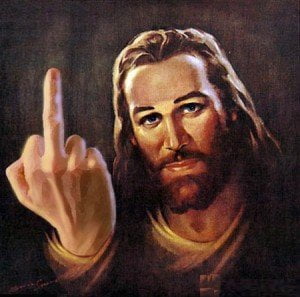February is turning out to be a rather uncomfortable month for South Africa’s President, Jacob Zuma. First we had Babygate, and now it appears that some of his goons have taken to abusing and arresting those whom they believe to not be showing sufficient respect to the Father of the Nation (or at least, a growing proportion of it).
Last week, JZ gave a completely uninspired State of the Nation address, which included the embarrassment of being laughed at by some parliamentarians when he mentioned the father of his most recent (known) lover/ prospective wife. And, to top it all off, it appears that the trade union Solidarity’s campaign to highlight the dissatisfaction felt by some (many? most?) South Africans on the Government’s response to crime “has no basis in fact”, at least according to Presidential spokesperson Vincent Magwenya.
 I suspect that UCT student Chumani Maxwele might disagree, following the unlawful harassment and intimidation he was subjected to on the evening of February 10, when Jacob Zuma’s security detail thought they spotted him giving the finger to the presidential convoy. Maxwele allegedly had a bag pulled over his head, before being driven to a police station and interrogated as to his political views, and which side of the fence he was on at Polokwane, where the populist JZ dethroned the philosopher king Mbeki.
I suspect that UCT student Chumani Maxwele might disagree, following the unlawful harassment and intimidation he was subjected to on the evening of February 10, when Jacob Zuma’s security detail thought they spotted him giving the finger to the presidential convoy. Maxwele allegedly had a bag pulled over his head, before being driven to a police station and interrogated as to his political views, and which side of the fence he was on at Polokwane, where the populist JZ dethroned the philosopher king Mbeki.
Fortunately for Maxwele, he could at least report that he was an ANC member, and thereby save himself from the waterboarding and fingernail extraction that might have befallen him if he had confessed to supporting one of the opposition parties. But his support for the ruling party could not save him from interrogation, nor from the day he spent in a prison cell and the raiding of his house by plain-clothes police officers, who went through his personal diaries and university notebooks looking for incriminating details.
This hypersensitivity to perceived (Maxwele claims that he just “waved them away”) criticism is deeply troubling, as it demonstrates a lack of commitment to free speech, and to allowing dissent from the “official” view. And seeing as the official view seems to tolerate homophobia, and is not particularly sensitive to crime or HIV/AIDS, the criticism is likely to keep on coming.
Moments like these provide an opportunity for JZ and the ANC to demonstrate that South Africa is not just another country in Africa, where stereotypes (unfortunately, all too often true) regarding thug rule, cronyism and a lack of respect for democratic processes come easily to mind. In the case of the letters protesting crime rates and a lack of response from Government, the statement could have indicated concerns regarding crime, while still making the point that the letters need to be delivered in a way that meets security and other concerns. In the case of Maxwele, a statement condemning this sort of behaviour on the part of police would be welcome, and would go a long way towards damage-limitation.
But what we get is silence, or contemptuous hatemongering from the likes of Malema. As the cliche reminds us, respect needs to be earned – and in this case, not only is there little effort in that regard, but there has also been a steady erosion of any goodwill we might otherwise feel towards JZ, seeing as he seems to be constantly surrounded by scandal. A commenter by the name of Leopold has this to say, on Pierre de Vos’s Constitutionally Speaking:
Let’s start a movement in support of our constitution called the Civil Rudeness campaign, based on Ghandi’s idea of Civil Disobedience. Citizens will regularly line the president’s route to and from parliament and show his cavalcade the finger as they drive past. It will blossom into a national salute to any politician screaming past with his entourage as a civil assertion of our inalienable right to express ourselves freely.
He might just be on to something there.
UPDATE (19 Feb): According to the police, Maxwele has confessed and apologised for disrespecting JZ. Minister Nathi Mthethwa has said: “Let us lay this matter to rest, as the person concerned has now apologised.”
That’s not the point – Maxwele may have been rude, but the response by police constituted a worrying abuse of power. Whether or not Maxwele believes himself to have been in the wrong has no bearing on the wrongfulness of the actions of the police, and we still await an apology from them.
